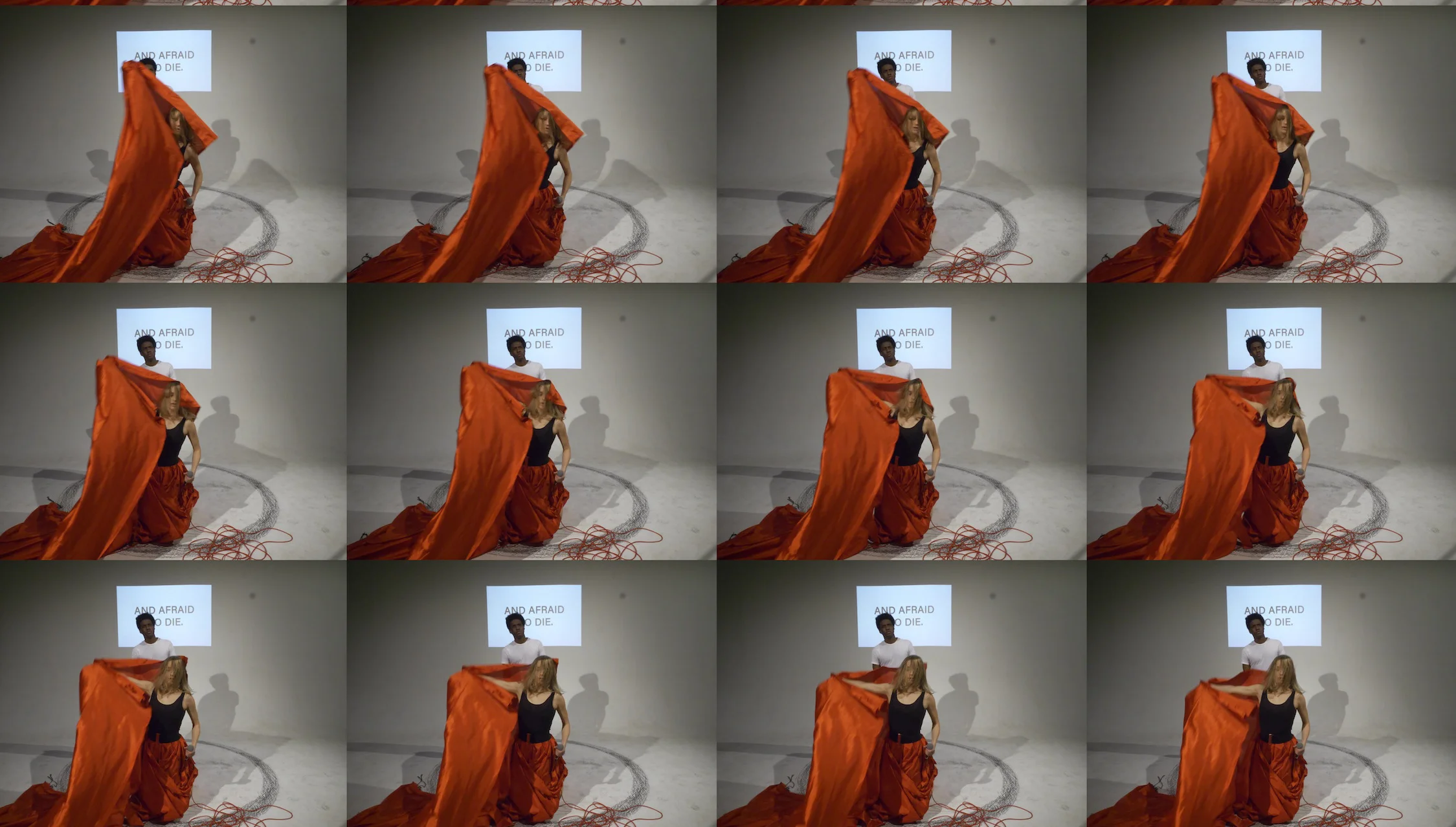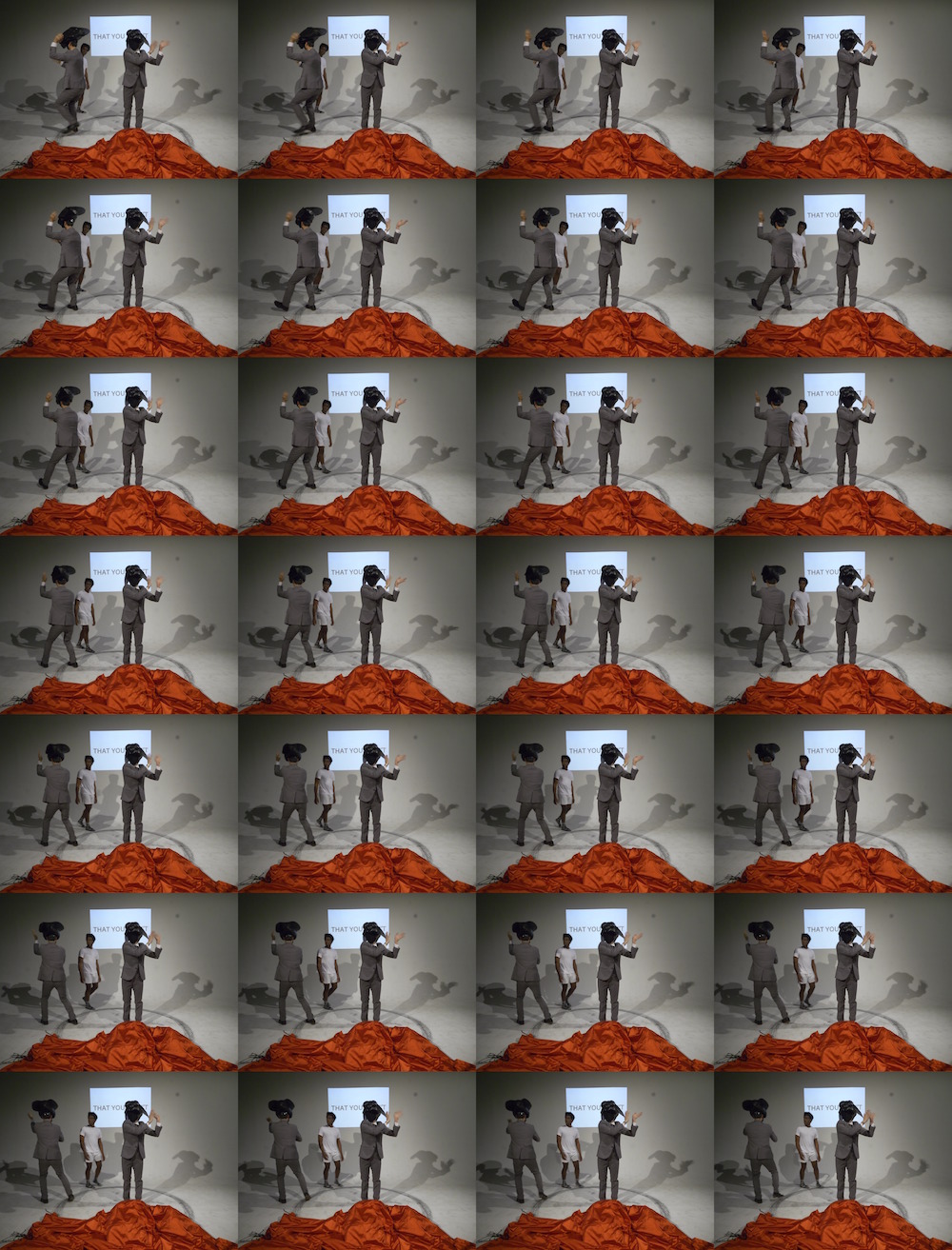On Death paper tape
Exhibited at
Angels Gate Cultural Center
August 24 – September 21, 2019
Mon - Fri 10AM - 4PM
Sat 12 - 5PM
Artist Talk & On Death Video Screening
Saturday, August 24th
12 - 4PM
VOLUME and the Angels Gate Cultural Center are pleased to announce Todo en ti fue naufragio, a group exhibition curated by VOLUME member Jared Baxter, featuring works by Sarah Cain, Patricia Fernández, Liz Glynn, Amy Howden-Chapman, Allison M Keating, Olga Koumoundouros, Karen Lofgren, Matana Roberts, and The Distance Plan with Oliver Kellhammer, Greg Lindquist, k. Flint, and Gabriela Salazar. Taking its title from a line from a Pablo Neruda poem, which literally translates to “everything about you was shipwrecked,” the exhibition will examine both literal and figurative vessels in their relationship to rupture and remembrance, disaster and struggle. Featuring new and previously-exhibited works by a range of Los Angeles-based, national, and international artists, narratives of life and death on the water open onto a reflection on the cataclysm of the present moment, as a kind of siren song and prophetic mourning. The On Death Paper Tape deepens the exhibition’s engagement with climate change, questions of futurity, and the role of the archive in an ever-increasingly precarious world.
on sale now
$3000 for Edition #1 including 1,107 sheets
Edition #2 is sold per individual sheets
$25 for 1 sheet
$100 for 5 sheets
All sheets will be numbered, denote the text spoken in the film and signed by the artist.
Individual sheets of Edition #2 will be sold on a first-come-first-serve basis.
Sheets of 5 will be sold in consecutive order to show the actor’s change in movements.
ABOUT
The paper print was created due to limitations by the U.S. Copyright Office when celluloid film was first invented. Only photographs could be copyrighted, not celluloid. As a result, the films from 1894 - 1912 were preserved as photographic prints on paper, while their original nitrate versions disintegrated. The early films we see today are reanimated versions of the original paper copies.
Paper, being a successful archival method to outlast us all, is the final art object of the On Death project. The On Death Paper Tape is a paper print of the video documentation of the performance by Allison M Keating in Los Angeles at 8pm on February 9th, 2019. The video documentation is 22 minutes in length, consisting of over 38,000 frames and lays out to 1,107 pages, which if preserved properly can last more than 500 years. Created as an edition of two, the first edition is sold as a whole and the second edition is sold as unique sheets. The artist’s proof will eventually be sent to the Library of Congress. At the time of the creation of On Death, the On Death Paper Tape serves as Allison M Keating’s only legacy.
In the space of this one-night-only performance, which by design was as energetically potent as it was fleeting, lies Keating’s reflection on “why stay alive?”—an existential question posed after a friend’s suicide and Trump’s detrimental renouncement of the Paris Climate Agreement. As ephemeral as life itself, the performance of On Death invited us to celebrate in raw reverie what gives us reason to live. Appealing to the viscera of its audience with collaged visual metaphors of life-high mimicry and imaginative facsimiles of death (giant flies, hooded tap dancers, a choir), this cathartic unfettered release was bounded by the self-imposed limitation of Keating’s ultimate purpose—the creation of a paper tape. With technical and directorial decisions committed to the production of material testimony meant to outlast the humans in the room, the performance struggles with the tension between our id-driven quest for momentary pleasure and our ego-driven ambitions to leave a legacy beyond our corporal existence. Keating posits that both living in the moment and living for the future stem from the unitarily absurd motivation to cheat death as she asks us to consider this most influential of fears and reminds us that we always have hope.
Edison Kinetoscopic Record of a Sneeze, Jan. 7, 1894. The original paper print of the first film by Thomas Edison created for copyright purposes.











